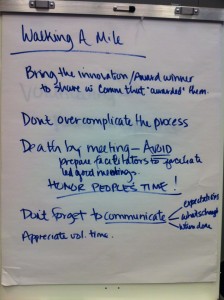
Just about every association I know of is struggling to recruit younger members (aka Millennials).
Part of the reason for that is that we’re erecting barriers to entry rather than removing them.
What’s required to be considered part of your association’s community? A certain degree? A license? A certification? MONEY?
Those are all barriers to entry that a young person may not be able to clear – at least not yet. What you’re telling them, in effect, is: “You are not welcome here.”
No wonder, when they can clear or have cleared those barriers, they aren’t returning. You made them feel unwelcome right when they needed you, when they were new in their careers, when they didn’t have an established network, when they needed a job. You turned them away. And for what? A few bucks?
Fundraising organizations know that if they can establish a relationship and loyalty up front, the dollars will come. Even if they don’t, those committed young fans will contribute in all sorts of valuable ways: volunteering to help with the mission-driven work of the organization, recruiting other supporters, amplifying messages and stories online and on social media.
Learn more about how fundraising organizations create alternate entry points to belonging and how associations can adapt their methods in the latest Spark whitepaper, Steal This Idea! Innovations in Cause-Oriented Fundraising for Associations freely available for download at https://bit.ly/3eu6ntm. Pay special attention to the stories of the Capital Area Food Bank and the CFA Society of Minnesota on pages 28-31.
Photo by Jumpei Mokudai on Unsplash
